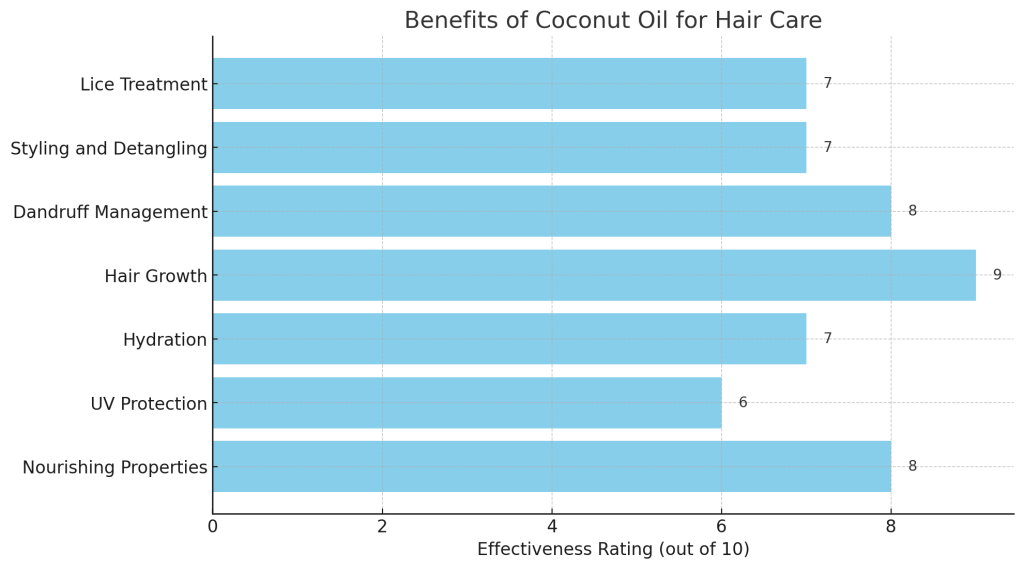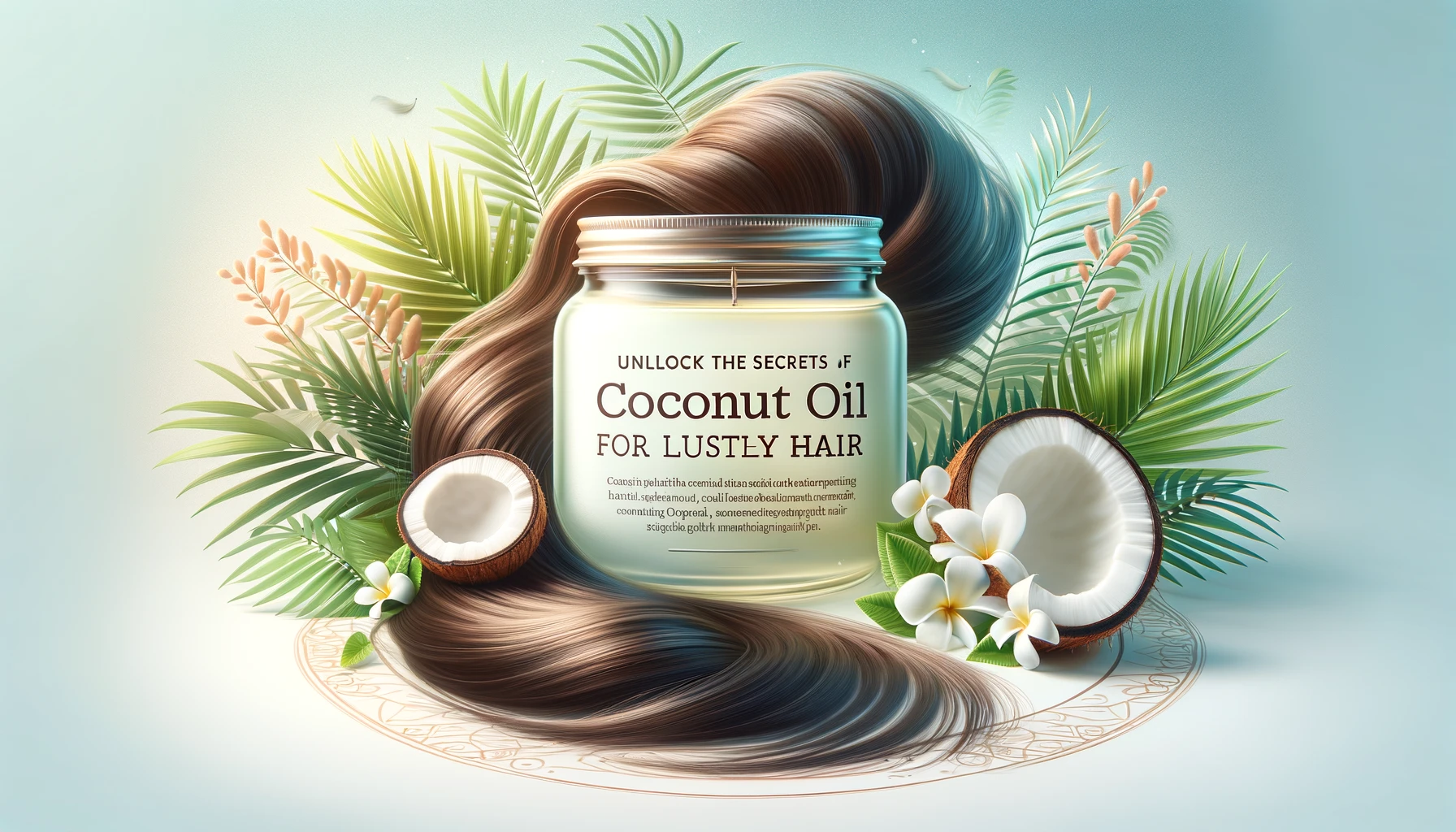Table of Key Takeaways
| Aspect | Detail |
|---|---|
| Shelf Life | Unrefined coconut oil generally lasts 2-3 years. |
| Usage Safety | Safe for external use if no spoilage signs, avoid cooking. |
| Effects on Hair | Less effective, can contain harmful microorganisms. |
| Indicators of Bad Oil | Sour odor, rancid smell indicates spoilage. |
| Hair and Scalp Risks | Potential irritation, redness, illness signs. |
Exploring the Use of Expired Coconut Oil on Hair
What Happens When You Use Expired Coconut Oil on Your Hair?
Using expired coconut oil on your hair can be a risky endeavor. While unrefined coconut oil typically has a shelf life of 2-3 years, stored in a cool, dry place away from direct sunlight, it’s crucial to be aware of spoilage signs such as changes in color, smell, and texture. If your unrefined coconut oil has passed its expiration date but shows no signs of spoilage, it may still be safe for external use, like hair care, but not for cooking.
Risks and Effects on Hair Health
When expired coconut oil is used on hair, it might not only be less effective in moisturizing and nourishing but can also contain bacteria and other harmful microorganisms. These contaminants can lead to hair and scalp irritation, redness, and other indicators of illness. The degradation of natural minerals and useful components in coconut oil over time means that expired oil may not provide the same benefits as fresh oil. If the oil has a sour or rancid odor, it’s a clear indicator that it’s no longer safe to use.
Continuing the Comprehensive Guide on Coconut Oil for Hair Care
Harnessing the Power of Coconut Oil for Your Hair
After understanding the risks of using expired coconut oil on hair, let’s explore the multitude of benefits that fresh, unexpired coconut oil offers for hair care.
1. Nourishing Properties and Benefits
Coconut oil, with its rich content of antimicrobial properties, lauric acid, and medium-chain fatty acids, serves as a powerful agent for strengthening hair, conditioning the scalp, and promoting hair regrowth. Its antioxidants and fatty acids, combined with antiviral, antifungal, and antibacterial properties, work together to improve the appearance, texture, and overall health of your hair. Here’s a rundown of the specific advantages:
- Reduces dryness
- Enhances scalp health
- Protects from protein loss
- Guards against UV exposure
- Fights infections and fungus
- Supports hair growth
- Adds volume and shine
2. Scientific Evidence of Coconut Oil’s Efficacy
Research underscores coconut oil’s protective effects against hair damage during grooming, attributable to its ability to penetrate hair cuticles and cortex. Furthermore, it’s been found to reduce protein loss in both damaged and undamaged hair, a key factor in maintaining hair health.
3. UV Protection and Hair Damage Prevention
Coconut oil is not just a nourishing agent but also acts as a barrier against UV exposure, preventing hair damage. Its SPF value of 8 makes it a practical, natural choice for protecting hair from the sun’s harmful rays.
4. Versatility in Hair Care Routines
Virgin coconut oil, preferably organic, is an excellent choice for hair and skin care, free from the harmful chemicals often found in commercial products. It’s an effective, natural tool for conditioning, styling, boosting hair growth, treating dandruff, managing lice, and enhancing shine.
5. Hydration and Damage Repair
Coconut oil excels in hydrating dry hair across all types. Its ability to penetrate the hair shaft nourishes the hair with essential vitamins, minerals, and fatty acids, reducing protein loss, preventing damage from grooming, and being safe even for children.
6. Combatting Thinning Hair
For those experiencing thinning hair, coconut oil can be a game-changer. By improving blood circulation in the scalp and penetrating the hair shaft, it enhances the overall health of the hair, making it a safe, effective, and affordable solution for hair growth and scalp health.
7. Effective Dandruff Management
Coconut oil’s medium-chain fatty acids, including lauric and capric acid, have strong antiviral, antimicrobial, and antifungal properties, making it an effective treatment for dandruff. It helps maintain a healthy scalp and reduces the effects of dandruff-causing bacteria.
8. Detangling and Styling
Coconut oil proves useful in detangling hair, reducing breakage, and serving as a styling agent, especially for managing frizz. It helps prevent thermal damage caused by styling tools and is effective for touch-ups throughout the day.
9. Lice Prevention and Treatment
A combination of coconut oil and anise spray has been shown to be more effective than traditional lice treatments, making coconut oil a potent solution for lice prevention and treatment.

Proper Storage and Identification of Spoiled Coconut Oil
Optimal Storage Practices for Coconut Oil
Proper storage of coconut oil is vital to maintain its quality and extend its shelf life. It should be stored in a dark place, away from direct sunlight, which can be either a pantry or a refrigerator. Refrigeration can cause the oil to solidify, preserving its freshness, but it also has a low melting point, making it easy to use after taking it out.
Choosing the Right Container
The type of container used for storing coconut oil is crucial. Glass bottles or jars are recommended to prevent chemical leaching from plastics and to protect the oil from light. Avoid storing coconut oil in metal containers, as it can react with the metal, potentially causing spoilage and an unpleasant smell.
Ideal Locations for Storage
Coconut oil can be stored in any dark, dry place like a kitchen pantry or cupboard. Avoid storing it in the bathroom due to moisture and fluctuating temperatures, which can negatively affect the oil’s texture and freshness.
Extending Shelf Life
To extend the shelf life of coconut oil, keep it in dry places with stable temperatures and light conditions. A kitchen pantry or the refrigerator are good options. Ensure the container is airtight to protect against oxygen, which can accelerate spoilage, and to keep out dirt, bacteria, and other contaminants.
Identifying Spoiled Coconut Oil
It’s important to periodically check coconut oil for signs of spoilage, especially if it has been stored for a long period. Indicators of rancid coconut oil include serious discoloration, chunky consistency, signs of mold, bitter or sour odor, and sour flavor. If any of these signs are present, the coconut oil should be discarded to avoid harmful effects, including the potential increase of harmful free radicals in the body.
In conclusion, understanding the proper storage and identification of spoiled coconut oil is essential for safe and effective use in hair care. By following these guidelines, you can ensure that your coconut oil retains its beneficial properties and avoid potential risks associated with spoiled oil.

